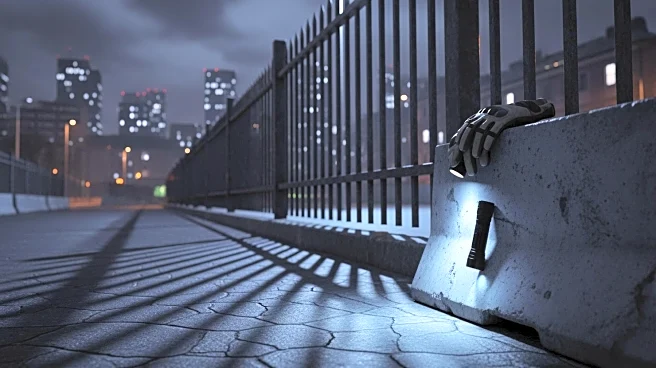What's Happening?
The Trump administration's mass-deportation campaign has increasingly relied on Border Patrol agents, known for their aggressive tactics, to operate in U.S. cities. This shift from ICE to Border Patrol has led
to confrontational and violent interactions, as seen in cities like Chicago and Raleigh. Border Patrol Commander Gregory Bovino has been instrumental in this approach, using military-style operations and promotional videos to depict the enforcement actions. The strategy has sparked civil rights lawsuits and criticism from federal judges, highlighting the tension between federal enforcement and community resistance.
Why It's Important?
The deployment of Border Patrol agents in urban areas represents a significant shift in immigration enforcement strategy, with implications for civil liberties and community relations. The aggressive tactics have raised concerns about racial profiling and excessive use of force, potentially undermining trust in law enforcement. The situation reflects broader debates about the balance between national security and individual rights, with potential impacts on public policy and social cohesion.
What's Next?
As Border Patrol continues its operations in new cities, legal challenges and community resistance are likely to intensify. The administration may face increased scrutiny and pressure to modify its approach, particularly as public opinion shifts. The situation could lead to policy changes or adjustments in enforcement tactics to address civil rights concerns.
Beyond the Headlines
The militarization of immigration enforcement raises ethical and cultural questions about the role of federal agencies in domestic law enforcement. The long-term impact may include changes in public perception of immigration policies and increased advocacy for immigrant rights. The situation highlights the need for dialogue and reform to balance security and civil liberties.









